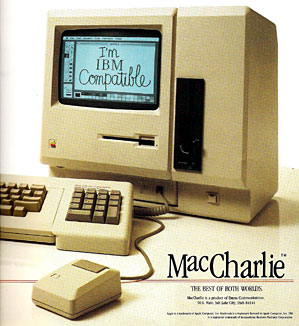Expertise
Hands-on technical expertise and strong knowledge of business development from start to end
- Research and development
- Technology licensing
- Intellectual property
- Patent filing
- Product definition
- Licensing of product line
- Manufacturing (domestic and overseas)
- Retail Channel Sales
- OEM Sales
- Equity financing
- Strategic planning
- Marketing
- Accounting, business planning, & proforma worksheets
- Re-invention and turn-around
- Business strategy, key drivers, and analysis
- Exit Strategy
Recognition
- Inventor and creator of the first commercially successful touchpad
- Founder and CEO of the Cirque Corporation
- Ernst & Young, LLP "Utah Entrepreneur of the Year" for Technology 1997, Judge 1998, and Finalist 1996
- Cirque named to Inc. magazine's list of 500 fastest growing companies, 1996–1997
- MountainWest Venture group's 1996 "Utah 100" list of the state's fastest growing companies.
- U.S. Small business Administration's "Small Business Exporter of the Year" 1997
Academic record
BS in Electrical Engineering, MIT, 1975
National Merit Scholar
PhD in Computer Science, University of Utah, 1981
Graduate Research Fellow
Hands-On Experience
Business Expertise
Before leading the commercialization of capacitance-based touchpad technology as the founder of the Cirque Corporation, Dr. Gerpheide had already established and operated two other companies, Quality Microcomputer Instrumentation (QMI), and Aquila Instruments, Inc.
Technical Expertise
Including the 1989 parent filing for the touchpad, Dr. Gerpheide created dozens of patents world-wide for innovations in data input and computer processing technology, computer-based inventory management, and interactive sports simulation.

Remember back in 1981 when IBM marketed its first PC with a Charlie Chaplin ad campaign?
Around that same time, Dr. Gerpheide was working with Dayna Communications on the aptly named MacCharlie co-processor, an attachable device that enabled Mac users to run IBM compatible applications. Also with Dayna, Dr. Gerpheide co-developed variable bit rate, cross-platform network interface circuitry and software that supercharged early Apple Talk networks.

Par-T-Golf
Dr. Gerpheide co-created this groundbreaking room-sized, full-swing computer golf game.

Zero-G Protein Crystallization
Dr. Gerpheide Initiated and managed research on the growth of protein crystals in microgravity in conjunction with Utah State University for the 1984 Space Shuttle Challenger Mission 41-B. The experiment was part of a USU "Getaway Special," and required a specialized cannister to house the crystal growing experiment. Dr. Gerpheide mentored four university students in the creation of the cannister, which provided optimal conditions for protein crystal growth and could withstand a 3G takeoff acceleration.

Utah/MIT Robotic Hand
As a Visiting Scientist to MIT's Artificial Intelligence Lab, Dr. Gerpheide developed control algorithms to animate a dexterous robotic hand. With 16 degrees of freedom, this pneumatics actuated, tendon coupled, anthropomorphic hand can achieve most fine motor movements of the human hand.